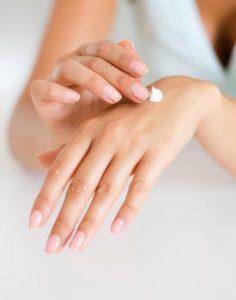Our mental health is so important as it casts a huge influence on how our days, months, and years play out overall. Just like maintaining physical health, keeping your mental health in good shape protects your energy levels, overall mood, and downplays different types of anxiety that many busy people experience in life. Some people may just turn a blind eye to not protecting their mental health, as it could be seen as a waste of time. Why keep up and care for a part of our bodies we can’t even see? I’m strong, why do I even need to seek therapy or online support to feel better? Those are questions that are often relayed through the minds of people who know they need help with their mental health or various anxiety symptoms, but don’t want to experience the stigma of shame and embarrassment that is attached it.
If you know you need help to deal with your anxiety symptoms or just want to know more about helping your mental health, there’s no need to feel lower than the average human being. The year is 2018 and everyone at this point has the right to seek out ways to better their health and lifestyle overall. Being stubborn, ignorant, and unhealthy is definitely not in fashion and you don’t want to end up in a hospital bed several years into the future. Here’s some quick and easy ways to better manage your anxiety symptoms and safeguard your mental health in general.
- To protect your mental health, you need to first accept that not everything in life is under your control. Things like performance and success are somewhat held accountable by your actions, but a negative event or accident that causes you stress is most often never your fault. You need to put your stress and anxiety symptoms in perspective. Write down how you feel on a piece of paper and you’ll soon realize that there are worse things that could have happened.
- Do your best and stop shooting for being perfect. We are humans and no one can have the perfect mental health, grades, love life, social events, and physique all the time. Focus on your own personal growth and stop comparing yourself to others who look like they have it all together. More often than not, you have no idea what struggles and pain other people are not showing behind their happy Instagram posts and snapchat stories.
- Maintain a positive attitude when you can. You don’t have to be happy all the time, because then you would be better off as a robot. The point is to make an effort to keep track of your thoughts and minimize the negative ones before your mind spirals into a darker place. Practicing a more encouraging dialogue is often one of the most powerful ways to transform your mental health. You never know how much of a difference being kind to yourself can make instead of criticizing every move you make throughout the day.
- Avoid drinking too much. Water is totally acceptable, as we need plenty of it to survive and stay hydrated. Limit how much alcoholic drinks and caffeine you take during the day, even if you need it to shave off the stress you’re experiencing. Those chemicals are stimulants that can aggravate your already existing anxiety and can even trigger brutal panic attacks. No one wants to have a sudden onset of emotions for having one too many lattes in the morning, so it’s best to stick to water, tea, or more gentle drinks in general. If water is too boring for you, there’s a variety of flavor drops you can purchase to make it taste just like your favorite juice! Additionally, you can add pieces of fruit into your water as well to get an extra boost of vitamin C which helps strengthen your immune system.
- Eat and sleep well. This is a no brainer to think about but executing it every day with discipline is where many people fall short. We’re not invincible and we all need to fuel our bodies with the nutrition and rest it needs to function well. If you have been feeling especially struck with symptoms of anxiety during a week, think about how your diet has been like and if you getting at least seven to eight hours of sleep. Don’t skip any meals and always eat foods that are as natural as possible to help maintain your energy. The saying, “we are what we eat” rings true in the case of maintaining mental health so make sure to be as mindful as you can!
- Take a time out. Many successful entrepreneurs, musicians, and athletes can attest to the benefits that meditation brings to their lives every day. You can practice yoga in the morning, listen to a calming music playlist, learning deep breathing techniques, or use your gym time as your window of reflection. You’ll get to know your thoughts better and you’ll feel comfortable spending time with yourself to grow. Even if it’s just a short mental break for a couple minutes, you will feel less anxious and stressed after the period is over.
Learn More
Hopefully these tips can get you started on the road to protecting your mental health in the midst of life’s most difficult struggles. If you’re not sure how serious your symptoms of anxiety maybe, you can also take an anxiety quiz online to learn more about what is going on in your body. It’s quick, easy, and can guide you into what steps to take to better prevent your stress levels from running high in the future!






